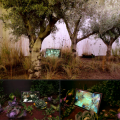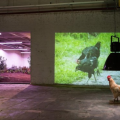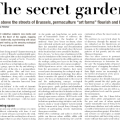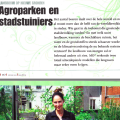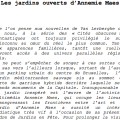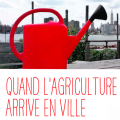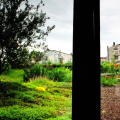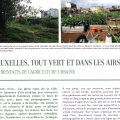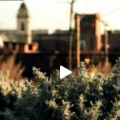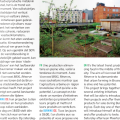Complete archive of publications, papers, exhibition catalogues and media coverage.
The contributions to this archive can be selected in the sub-menus for a faster search.
Matter of Kinship - fieldnotes (Stolen Books, Pt - 2024)
This publication is one of the outcomes of Anne Marie Maes' residency at the Casa de Mateus Foundation. It complements the exhibition 'Matter of Kinship' / 'Matéria de Afinidades'.
“We are contaminated by our encounters; they change who we are as we make way for others. As contamination changes world-making projects, mutual worlds – and new directions – may emerge.”
Anna Lowenhaupt Tsing, The Mushroom at the End of the World
Hamburg Machine Revisited - publication by Adocs Verlag 2022
In its second term from 2018 to 2020 with the title HAMBURG MASCHINE, the urban initiative project "Stadtkuratorin Hamburg" revolved around the theme of digitality in the context of art in the public sphere. This publication documents, updates, and expands the program developed and curated by Dirck Möllmann.
Hiperorganicos - Reconexoes ancestrofuturistas
Este livro é um projeto editorial resultante das atividades de pesquisas realizadas no NANO – Núcleo de Arte e Novos Organismos / EBA-UFRJ, laboratório criado em 2010 pelo artista-pesquisador Carlos Augusto (Guto) M. da Nóbrega, coordenado desde então junto com a também artista-pesquisadora Maria Luiza (Malu) P. G. Fragoso. O laboratório NANO atua no âmbito da graduação, e do Programa de Pós-Graduação em Artes Visuais, da Escola de Belas Artes, na Universidade Federal do Rio de Janeiro.
Eco-Visionaries - Lisbon, Basel, Gijón, publication 2018-2019
The exhibition Eco-Visionaries is dedicated to the topic of ecological change and presents artistic responses to current challenges.
How are new media, technologies and technology-scientific methods used in the arts to draw attention to pressing ecological issues? What visionary projects and ideas are emerging to tackle climate change, food shortage and resource depletion? Which solutions are worth pursuing?
Bee Writings - Beehave @ Fondation Miró, 2018
One could say that ever since Joseph Beuys adapted the theses of Rudolf Steiner, the author of a series of famous lectures about bees, the importance and symbolism of these insects has been widely examined by contemporary artists.
Fair/Fear. Resonances II - publication, 2017
Can artists collaborate with scientists and policy makers? That is the question the European Comission's Science and Knowledge Service, the Joint Research Centre or JRC, put itself. The JRC wanted to understand if the rapprochement between art and science of the last decades could help it to adapt to changing times, to refine its policies and reach out to the public.
Ecovention. Art to transform ecologies 1957-2017 - publication, 2017
This section introduces ecoventions as a subset of land art, presents
a succinct chronology of the past 60 years of ecological events in Europe and describes the global art scene that inspired the 2002 exhi- bition “Ecovention: Current Art to Transform Ecologies,” as well as what transpired afterwards.
CyberArts Publication - Ars Electronica, 2017
The CyberArts exhibition at the OK Center for Contemporary Art (Sept.7-Sept17, 2017) features the best works singled out for recognition by the 2017 Prix Ars Electronica. The world’s most coveted prize honoring creativity and pioneering spirit in media art has been awarded annually since 1987.
Renewable Futures (essay Sound Beehive) - publication, 2017
With this Renewable Futures volume, we begin a new series of Acoustic Space, that will focus on exploring the transformative potential of art in the post-media age. Our book presents the research and practices that aim to invent new avenues for more sustainable and imaginative future developments. The papers from the 1st Renewable Futures Conference selected in this volume are aimed at shaping new contact zones between traditionally separated domains – art and science, academic research and independent creative practices, sustainable businesses and social engagement in the 21st century.
Resonances I : FOOD - publication, 2016
The book, an art book on food, is based on material gathered during RESONANCES I, an ad hoc project organized by the Joint Research Center of the European Commission at the occasion of the Universal Exhibition EXPO 2015: Feeding the Planet, Energy for Life.
The material has been deconstructed and reconstructed into a new narrative that evokes the need of considering food not only as a mere scientific, technical and commercial matter of fact but also as a social, cultural and political matter of concern.
Alchimia Nova - publication, 2016
AnneMarie Maes is a multi-media artist who has been studying the tight interactions and co-evolutions within urban ecosystems. In the open-air lab on the rooftop of her studio, she created an experimental garden and has been keeping bees in self-designed beehives, equipped to bring out hidden structures in the life of the colony. Her “field notes” provide an on-going source of inspiration for her artworks.
the Transparent Beehive Notebook, updated - publication, 2016
AnneMarie Maes studies the tight interaction between city honeybees and urban ecosystems. Her preoccupations with bees come from a fascination with these amazing insects: the way their bodies look and function, they way they organize their complex societies, and the way they explore their environment.
Ignorance - publication, 2015
A collection of plans, descriptions of art works, pictures of events, creative texts and drawings, made by an international group of artists about issues in environments and art. The initiative 'A Laboratory on the Open Fields' (ALOTOF) was working outside the general and accepted lines of conventional creativity, trying to investigate new forms and methods for an ecological media art.
the Transparent Beehive Notebook - publication, 2013
The Transparent Beehive Notebook gives an overview of the Transparent Beehive Project. It describes in words and images the intense process of Bee Monitoring and the close collaboration with numerous colleague artists, scientists, engineers and beekeepers. The relation bees and flowers is an evident one and is never far away in this notebook. In an artistic way and starting from hands on experiences as a beekeeper, I give an account of the building of monitoring systems and their implementation in the beehives at the open field labs. Working with the collected...
TIK Ideas : Travelling Through Open Greens - publication, 2012
1. TIK ideas 1.6 Thinking of the Garden 1.6.1 definition of a non-garden like 1.6.1.a Travelling through OpenGreens
Connected OpenGreens - publication for Burning Ice #4, 2011
This fourth edition of Burning Ice -'It's the economy, stupid!'- will be built up around the theme of economy. Climate change confronts us with the consequences of our actions. It turns our world-view with its endless growth completely upside down. Our civilisation appears to be underpinned by waste, excess and fundamental inequality.
Continuum Cinema : the Vision Machine – publication, 2004
Continuum Cinema : the Vision Machine is een onderzoeksproject naar de productie-, presentatie en perceptie van collaboratieve werken in de hedendaagse kunst.
Cinema moet hier gelezen worden zoals gedefinieerd door Peter Greenaway : “de totale som van alle technologië die ingezet worden ter bevordering van het bewegend beeld : film, computer en digitaal beeld, en structuren als gesproken en geschreven woord, acting, montage, klank en licht.”
Het is een ruim onderzoek, dat gevoerd wordt vanuit de taal van de nieuwe media. Het project onderzoekt het ...
The Art + Science + Policy Nexus – publication by EU/JRC
How do cutting edge art-science initiatives intersect with policy? This scoping study surveys the landscape of the art-science-policy network, focussing on how and when art-science projects interact with policy and policymakers. What emerges is a diversity of channels by which learning and ideas from art-science make their way to policy
Alchimia Nova - De l’emergència de conrear el nostre Jardí, 2021
Resum:
L’artista i apicultora AnneMarie Maes, fascinada per les abelles des de fa més de dues dècades, tracta l’estreta interacció i coevolució entre aquests insectes i els ecosistemes urbans, mitjançant pràctiques d’investigació artística, en col·laboració amb científics i enginyers.
Dialectics of Nature - Leonardo MIT press, 2020
Leonardo: https://www.mitpressjournals.org/doi/abs/10.1162/leon_a_01770
Between realms of cellular life, city occupation and technology, AnneMarie Maes’s Intelligent Guerrilla Beehive project and Dennis Dollens’s metabolic architectures share a theoretical lineage and form-finding curiosity, subscribing to the vie...
Sensorial Skin, Starts Residency at Hybrid Forms Lab, 2019-2020
The artwork L’Origine du Monde’ shows a strongly enlarged bacterial chain made from glass cells and filled with colonies of cyanobacteria carrying out live real-time photosynthesis. Cyanobacteria are photosynthetic bacteria that live in moist soil and water, often in a symbiotic relationship with plants or lichen.
The glass cells for the artwork have been specially produced by glassblowers in Venice. Different strains of cyanobacteria have been cultured at the Hybrid Forms Lab, which is specialised in photosynthesis.
paper for 'Renewable Futures: Hybrid Labs' - Aalto University, 2019
For most of the past decade I have been growing, hacking, digitizing, building, and thinking
about beehives - particularly those in urban areas. Collaborating with a team of biologists, I
am reconceptualizing what a beehive is and what it can be. The bio-art project The
Intelligent Beehive monitors the behaviour of urban honeybee colonies as a source of
inspiration for ongoing artistic research into issues of ecological, architectural and social
sustainability in urban environments.
paper for Hiperorganicos - Rio de Janeiro University, 2018
The Intelligent Guerrilla Beehive is a research project on the edge of art and science. It evokes issues of sustainability and biodiversity, giving viewers an artistic experience of my ongoing research related to the disappearance of the honeybee. The goal of the Intelligent Beehive is a double one. At one hand it offers a safe refuge for city honeybees, and at the other hand is is a biosensor that interacts with the environment and that measures the pollution of the foraging fields around the beeh...
Autopoietix - Intelligent Beehive as Architectural Data, 2017
I came to Maes’s work because her experiments connect living, intelligent systems and technology/biosciences with social (colony/urbanism) architectural and technological prototyping and experimentation. Her work illustrates radical and necessary ecological searches for sharing urban life. Equally, her toolset and research trajectory
Open Systems Exploration for Ecosystems Leveraging - paper, 2016
Abstract. We established a Complex Systems Digital Campus e-laboratory “Open Systems Exploration for Ecosystems Leveraging” in view of re- designing sustainable social-ecological systems related to food produc- tion ranging in food, health, community, economy, and environment. 6 initial projects have been set up, namely Synecoculture, P2P Food Lab, Open Systems Data Analytics, The Bee Laboratory, Open Systems Sim- ulation and One-Health Food Lab.
The Sound Beehive Experiment - paper, 2015
The Sound Beehive Experiment
The Sound Beehive Experiment monitors the development of a bee colony on the basis of the sounds it generates. For this purpose, we developed a beehive that is equipped with sensors, microphones and cameras. We made sure that this equipment is not hindering the bees in their daily action. The Sound Beehive is installed in our field laboratory on a rooftop in the Brussels city centre.
Fig. 7. Diagram of the technical architecture of the Sound Beehive.
The...
The Scaffolded Sound Beehive - paper for IJCAI exhibition & conference, 2015
The Scaffolded Sound Beehive is an immersive multi-media installation which provides viewers an artistic visual and audio experience of activities in a beehive. Data were recorded in urban beehives and processed using sophisticated pattern recognition, AI technologies, and sonification and com- puter graphics software. The installation includes an experiment in using Deep Learning to interpret the activities in the hive based on sound and micro-climate...
Agroecology: A Fertile Field for Human Computation - paper, 2014
abstract:
Human Computation may be the best approach for the monitoring/analysis/management of agroe- cological food production systems. This is the preliminary conclusion we have reached in the P2P Food Lab experiments.
Alchimia Nova - La Kunsthalle, Mulhouse, Feb-April 2023
Anne Marie Maes est une artiste que l’on peut rattacher au genre art et science. Elle développe depuis de nombreuses années un travail qui s’appuie sur la recherche scientifique, la biologie, l’étude des micro- organismes d’une part, les sciences numériques et la passion du jardinage d’autre part.
Abstracte Kunst bestaat niet - Galerie Emergent, Veurne, 2021-2022
In deze groepstentoonstelling presenteren we kunst die zich verhoudt tot de vele abstracties die onze levens beheersen. En dat terwijl het onmogelijk is om een abstract kunstwerk te maken.
Woven by Nature - iMAL, 2021
In an era where anthropocentrism defines more than ever the relationship we as humans build with nature, shifting the centre of attention can become a revolutionary act.
Sensorial Skins - Pilar, VUB, 2021
Sensorial Skins presents investigations into the sculptural potential of organic materials. AnneMarie Maes transforms them into fabrics, membranes and biofilms. She thus creates complex surfaces that arouse our senses through their materiality, their texture, their colours and smells.
Siva Zona - Grey Area: Discourses, 2021
Grey) (area – space for contemporary and media art was inaugurated in Korčula in summer 2006 upon the initiative by the artist, designer, and curator Darko Fritz from Zagreb. In 2009 grey) (area was formally registered as a non-governmental organization and today it has nine members. Sonja Leboš joined in 2013 as project manager.
Un/Green Festival Riga, 2019
The 2019 RIXC Festival aims at complicating the pervasively employed notion of ‘green’ by providing a cross-disciplinary platform for discussions and artistic inter- ventions exploring one of the most paradoxical and broadest topics of our times. The festival features the UN/GREEN exhibition at the Latvian National Museum of Art, and the 4th Open Fields conference that aims to ‘un-green’ greenness, eco-systemically reconnect post-human postures, and discover and unpack 'Naturally Artificial Intelligences'.
Eco-Visionarios, Laboral, Spain - 2019
The exhibition Eco-Visionaries is dedicated to the topic of ecological change and presents artistic responses to current challenges.
How are new media, technologies and technology-scientific methods used in the arts to draw attention to pressing ecological issues? What visionary projects and ideas are emerging to tackle climate change, food shortage and resource depletion? Which solutions are worth pursuing?
Leve[n]de Kunst, Academie voor Wetenschappen & Kunsten, 2019
Wanneer kunst, wetenschap, design en technologie hun krachten bundelen, komen ze tot prikkelende en wederzijdse inzichten. De beelden, gedachten en producten die eruit voortkomen verruimen zowel de kennis, de verbeelding als de toekomstperspectieven. Leve[n]de Kunst: ontmoeting tussen kunst, design en (micro)bio(techno)logie.
Intelligent Beehives as predicates for Metabolic Architectures, 2019
Theory-driven architecture may be organized to encode and set procedures for research-by-design seeking data from prototyping as an extension of art. Through art, a research scaffold may emerge for exploratory architectural experimentation and discussion. Associatively, interlinked sets of observational data, sensor readings, laboratory tests, environmental analysis, and fablab models permit potential hybrid materials to embed data for exchange between science, design, and urban sites.
Imagining Cities beyond Technology 2.0, 2019
Technology has been a crucial element in preparing cities for a turbulent future. This is why Brussels in SongEun: Imagining Cities beyond Technology 2.0 engages in a socio-political discourse that involves contemporary visual artists in facing this issue -the question of what constitutes a desirable 'intelligent' city in a time of technological revolution?
For a Brave New Brussels - catalogue, 2018
For a Brave New Brussels (Maat, Lisbon Oct/Nov 2018) is an exhibition and discussion platform that stimulates the discourse around ‘Smart Cities’. Since its early days, the application of new digital technologies to urban spaces and pro- cesses has been celebrated for its ability to increase the well-being of citizens, but this engagement has mostly been limited to a technocratic focus on energy systems, mobility and building efficiency. It has privileged ...
Hybrid Labs Symposium - Aalto University, 2018
Between May and June 2018, the prestigious Aalto University hosted the “Hybrid Labs Symposium 2018”. For several years, design, digital media, audio-visual representation methods, architecture, emerging technologies and urban planning have been an integral part of Aalto University’s agenda, incorporating experimental research. These fields contribute to an interdisciplinary debate starting from the hybrid, which is understood as an actual state in which everything can be recognised: languages, academic disciplines, professions and life itself.
Miró Foundation - Where are the bees? (2017)
Beehave explores the right of honey bees to inhabit urban spaces, the coexistence of the city's desired and necessary biodiversity with the artificial elements of the urban landscape.
Nova XX - catalogue, 2017
A forum dedicated to innovation by women in technology, science and art at the dawn of the fourth industrial revolution / 4.0. The first edition of Nova XX will happen in Brussels from 9th to 30th December 2017. The main events include an exhibition of 9 installations by artists from Brussels and elsewhere in Europe, as well as
Beaf Bozar. Tendencies - catalogue, 2017
The Tendencies exhibition unites contrasting narratives of some of the most interesting and intriguing voices in Belgian arts. Tendencies presents artworks that ‘use’ or ‘comment upon’ the latest evolutions in science and technology. Tendencies puts emphasis on works which question scientific and technological innovations as much as they incorporate them.
Foraging Fields - catalogue, 2014
Catalogue accompanying the installation Foraging Fields which is developed for the exhibition FIELDS - curated by Rasa Smite and Raitis Smits (Rixc) and Armin Medosch. The FIELDS exhibition is one of the major exhibitions of Riga– European Cultural Capital 2014. It runs from 15/5/2014 to 4/8/2014 at the Arsenals Exhibition Hall of the Latvian National Arts Museum. The landmark exhibition shows approximately 40 artworks by international artists focusing on art/science interactions and ecological issues.
Annemie Maes studies the co-evolution b...
Scientific Inquiries - catalogue, 2013
Seven research-based artists were invited to Koç University to meet with researchers from various fields to develop artistic projects which are engaged with the outstanding researches that are being conducted in the university. At first, huge amount of researches were presented by Koç University to the artists and the curator, then, 33 researchers, whose researches are in synch with the artists’ area of interest, were selected by the curator. After attending a set of meetings both with the curator and the researchers in a period of ...
Creating Ecological Corridors in Cities - essay, 2013
AnneMarie Maes is representative of a new wave of artists for which art is life and life is ecological.
This direction of work is of course not entirely new. It is the visionary 20th century artist Joseph Beuys who already in the nineteen sixties showed the need for a radically different kind of art. He argued forcefully against the wasteful use of natural resources and in favor of a social humanitarianism that tries to connect individuals back to their communities and to the ecosystems on which human life depends....
Kunstenaars en designers zijn niet vies van schimmels en bacteriën (feb.2024)
Van ziektemakers tot de vuilnismannen van de natuur: schimmels, bacteriën en algen brengen vele functies en associaties met zich mee. Kunstenaars en designers omarmen steeds vaker de zintuiglijkheid en het duurzame poten tieel van deze eigenzinnige microorganismen. Maak kennis met lichtgevende schimmels en wevende bacteriën.
Anne Marie Maes et Alchimia Nova à la Kunsthalle de Mulhouse - Poly Art (mars 2023)
Apicultrice et apprentie biochimiste, la Bruxellloise Anne Marie Maes investit la Kunsthalle de Mulhouse avec ses œuvres organiques, fruits d’une Alchimia nova poétique. Entre laboratoire de folles expériences et savant cabinet de curiosités, Anne Marie Maes a transformé, le temps d’une déroutante exposition, le musée mulhousien en poste privilégié d’observation de la nature, dans toute sa mystérieuse complexité et sa plus fascinante beauté.
Fruits de la science et du hasard, les créations d'Anne Marie Maes célèbrent le vivant - France Culture
A partir d’éléments végétaux et de bactéries, l’artiste belge Anne Marie Maes crée des œuvres où science et art dialoguent de façon surprenante. Le résultat d'un travail mené en collaboration avec une équipe de microbiologistes du CNRS de Strasbourg.
Avec Alchimia Nova, Anne Marie Maes explore la matière vivante à Mulhouse - Makery (Mars 2023)
Anne Maries Maes présente « Alchimia Nova » à la Kunsthalle de Mulhouse jusqu’au 30 avril. Une exposition à ne pas manquer pour les féru(e)s de peaux de kombucha, teintures naturelles, cire d’abeille, lichens et autres colonnes de Winogradski.
Elixir de vie Microscopique - Novo (Mars 2023)
Avec 'Alchimia Nova', Anne Marie Maes investit la Kunsthalle de Mulhouse en la transformant en Laboratoire Artistique du vivant.
Anne Marie Maes transforme la Kunsthalle en laboratoire (Mouvement, mars 2023)
Apicultrice, herboriste et apprentie biochimiste, Anne Marie Maes traite la nature comme un répertoire de formes infinies. Au fil de ses expériences, elle produit des textures et des matières inédites qu’échantillonne l’exposition Alchimia Nova à la Kunsthalle de Mulhouse.
Anne Marie Maes, artiste et alchimiste - l'Alsace (21/02/2023)
'Alchimia Nova' à la Kunsthalle de Mulhouse: une exposition dédiée au travail de l'artiste belge Anne Marie Maes, artiste et alchimiste.
Alchimia Nova (Kunsthalle Mulhouse)
'Nous sommes contaminés par nos rencontres : elles changent ce que nous sommes pendant que nous ouvrons la voie à d’autres. Comme la contamination modifie les projets de mondes en chantier, des mondes mutuels ainsi que des nouvelles directions peuvent émerger.'
Anna Lowenhaupt Tsing, 'Le champignon de la fin du monde'
Bees and Bacteria in Art Making - KI Culture
AnneMarie Maes is a renowned Belgian artist, particularly involved in art/science projects, often participating in fruitful collaborations between scientists and artists, but also with more unusual co-creators such as bees, bacteria, and algae. AnneMarie welcomed us in her Brussels home and showed us her marvelous urban garden, a beacon of lush biodiversity in the middle of the city. We talked about her experience with cultural institutions and the general public in relation to environmentalism and her daring hybridization of techniques, her groundbreaking work with communities (human and non-human ones), and the effectiveness of art as a teaching tool.
___ interview by Valentina Bianchi
Kunstenaar-Onderzoeker AnneMarie Maes - De Markten, 2021
Buren van de Markten - Kunstenaar/Onderzoeker AnneMarie Maes.
AnneMarie Maes bereikt wonderlijk mooie resultaten in haar werk met bacteriën, schimmels, mossen en bijen. In haar daktuin vindt ze alles wat ze hiervoor nodig heeft.
De Mosterd - Hart magazine, 2021
In deze rubriek polsen we waar kunstenaars de mosterd hebben gehaald voor hun (recente) werk. Deze keer vertelt AnneMarie Maes (1955, Leuven) over de Sensorial Skins, tactiele texturen waarvoor ze onder andere bacteriën inzet.
Point Culture - Rencontre en Images - magazine
C’est la rencontre de l’art et de la science, un dialogue esthétique inattendu où formes du passé s’entrelacent avec celles du futur. Femme de génie, Anne-Marie Maes réconcilie les antinomies usuelles pour produire un travail infiniment complexe et stupéfiant de poésie ....
Boombartstic, Brussels Artzine
Tendencies, c’est l’art belge à l’ère numérique en mode féminin, seconde édition. Six artistes-femmes – Alex Verhaest, Stéphanie Roland, Anne-Marie Maes, Claire Wiliams, Katia Lecomte Mirsky et Esther Venrooy réunies sous le commissariat de Stéphanie Pécourt.
SivaZona Gallery Show - press, newspapers
Press Siva Zona / Grey Area Gallery Show: Flags, Grids and Sensorial Skins.
PDF download:
dubrovnik_herald
tris
AnneMarie Maes: Alice in Wonderland - magazine
Al te vaak leeft de idee dat kunst en wetenschap elkaars tegengestelde zijn, dat ze elkaar uitsluiten, maar steeds meer groeit de overtuiging dat de creativiteit en de originaliteit van beide met elkaar verwant zijn. Ook neemt het aantal kunstenaars toe dat wetenschap als uitgangspunt neemt voor de meest uiteenlopende artistieke experimenten: ze maken sculpturen uit lichaamscellen, componeren muziek aan de hand van hersengolven ofontwerpen robotica en informatiesystemen. Voor het publiek is het even wennen.
I am fascinated by their behaviour, 2019
- Nowdays the newspapers are filled with the climate change problem. Do you think that, in a thousand years, there will still be humans on earth?
- I think humans are a strong animals (laugh). Big survivors. Better would be if there are less humans on Earth, it would be good to have a balance and restore Nature more or less. For sure, Nature will exist in 1000 years. When I started my rooftop garden on the rooftop of my studio in Brussels (where we discussing now), the first few meters were a terrace.
Gonzo: Bijen zijn net sciencefiction robots, 2019
AnneMarie Maes is gefascineerd door bijen. Ze doet artistiek onderzoek naar slimme korven voor de ernstig bedreigde insectensoort. Wetenschap en Kunst moeten niet als los van mekaar gezien worden, benadrukt ze. Inmiddels heeft ze een belangrijke stap gezet richting een bijenkorf die aansluit bij de behoeften van haar bewoners.
Le Nouveau Monde d'AnneMarie Maes
« Il faut cultiver son jardin » : tel pour- rait être le premier axiome d’AnneMarie Maes, artiste plurimédia et authentique chercheuse scientifique, adepte de l’urban gardening, qui a conçu un jardin de 750 m2 sur son toit, en plein centre de Bruxelles. « Mon jardin, c’est mon laboratoire opéra- tionnel. Je l’ai créé pour les abeilles, chaque plante est utile pour la pollinisation. Il y a des arbres fruitiers, beaucoup d’herbe, une serre artificielle, des légumes... »
...
Beehave - AnneMarie Maes. Fundació Miró.
Circulating through the Fundació Miró, I’m reminded that the 1972 museum building was designed by Josep Luís Sert and, that the exhibition I’m seeking, was curated by Martina Millà. There, in collaboration with the building’s space and curatorial brief, AnneMarie Maes investigates the too-little-appreciated cognitive performance between bees, nature, and humans. Doing so, her installation delivers glimpses of bee intelligence. In this artist-, architect-, curator-, mediated space, a species’ cognition — nearly foreign to hu...
Neural Magazine - Intelligent Guerilla Beehive, bee careful
The complex bee ecosystem and its influence on others has been underlined by science, such as the threats caused by the urban pollution. “Intelligent Guerilla Beehive” is a beehive designed to allow bee colonies to survive in particularly compromised urban environments. It is a sensitive device that reacts to possible environmental pollution and contributes internally to the preservation of bee health.
The Word - magazine
Five reasons not to miss this year’s BOZAR Electronic Arts Festival. Amongst a long string of cutting-edge expositions, the eye-catching Tendencies: Belgian Art in the Digital Age. In the Feminine #2 is absolutely unmissable. For the second edition of Tendencies – an intricate study of the increasingly blurred boundaries between contemporary arts, media and technology –
Hilde Vraagt - online, blog
Hilde vraagt.
Ongewone gesprekken met hedendaagse kunstenaars.
http://hildevancanneyt.blogspot.com.es/2017/01/interview-met-annemarie-maes.html
Kunstletters - magazine
In elk nummer van KunstLetters stellen we een kunstwerk extra in de kijker. We zoomen in op een bijzonder object of concept dat de praktijk van een kunstenaar typeert.
In dit nummer stelt AnneMarie Maes 'Guerilla Beehive' voor. Deze bijenkorf in een radikaal nieuwe vorm is het resultaat van haar zoektocht naar nieuwe materialen en fabricagemogelijkheden.
Interview met AnneMarie Maes, 2016
Hilde Van Canneyt interviewt kunstenaars uit België en Nederland, in het boek ' 4321 vragen aan 123 Kunstenaars'. Publicatie Borgerhoff&Lamberigts en merbooks.be, 2020. Interview met AnneMarie Maes afgenomen Herfst 2016.
Curious Observations - press, La Vanguardia
Barcelona, 7 may (EFE).- La importancia de la vida de las abejas en las zonas urbanas se explica en una exposición organizada por el Instituto de Biología Evolutiva (UPF-CSIC) que se ha inaugurado hoy en el vestíbulo del edificio del Centro Mediterráneo de Investigaciones Marinas y Ambientales de Barcelona.
TF1 USHUAIA - RTBF - TV BRUSSEL
Summer and autumn 2011 we were visited by several television crews, due to the participation in the Open Gardens city circuit organized by the bibliothèque René Péchère.
Several News or Garden programs covered our intensive edible rooftopgarden in a short documentary.
TV Brussel were the first to film, on september 25th 2011. A day later, the crew from Jardins et Loisirs / RTBF followed. The young guys from Ushuaia TV experimented in the rooftop with their Canon 7D cameras and travel stuff, for the program Garden party, on november 22nd 2011.
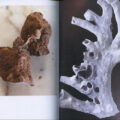
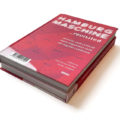
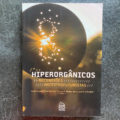
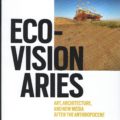
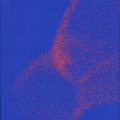
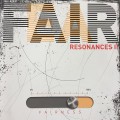
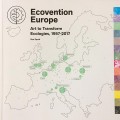
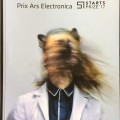
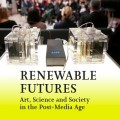
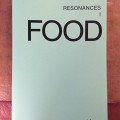
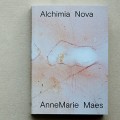
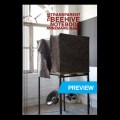
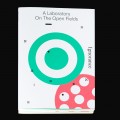
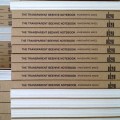
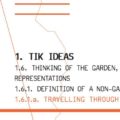
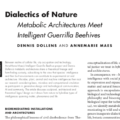
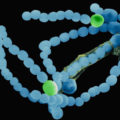
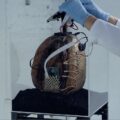
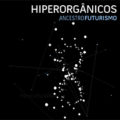
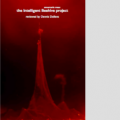
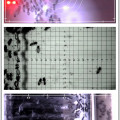
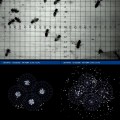
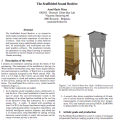
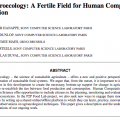
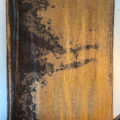
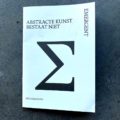
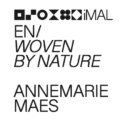
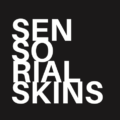
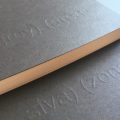
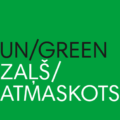
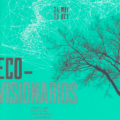
![Leve[n]de Kunst, Academie voor Wetenschappen & Kunsten, 2019](https://annemariemaes.net/wp-content/uploads/2019/04/DSCF2807b-120x120.jpeg)
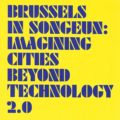
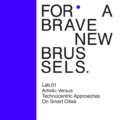
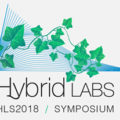
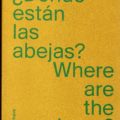
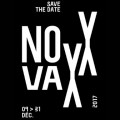
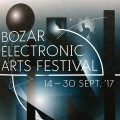
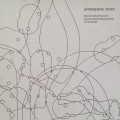
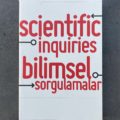
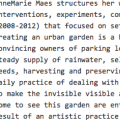
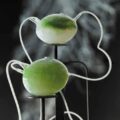
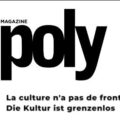
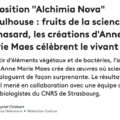
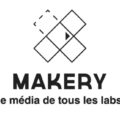
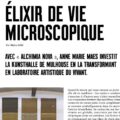
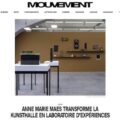
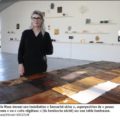
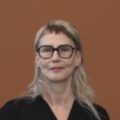
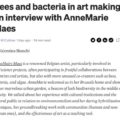
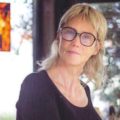
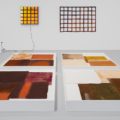
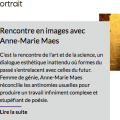
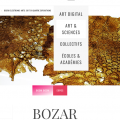
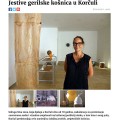
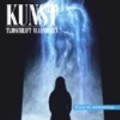
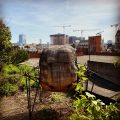
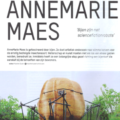
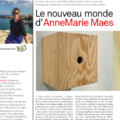
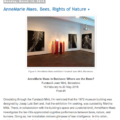
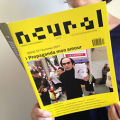
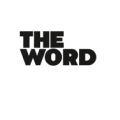
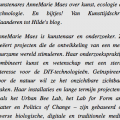
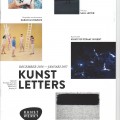
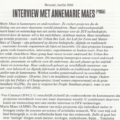
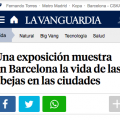
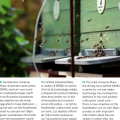
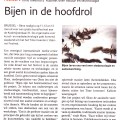
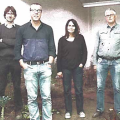
![GREEN LIGHT DISTRICT in [H]-ART](https://annemariemaes.net/wp-content/uploads/2014/10/DSCF3162-120x120.jpg)
